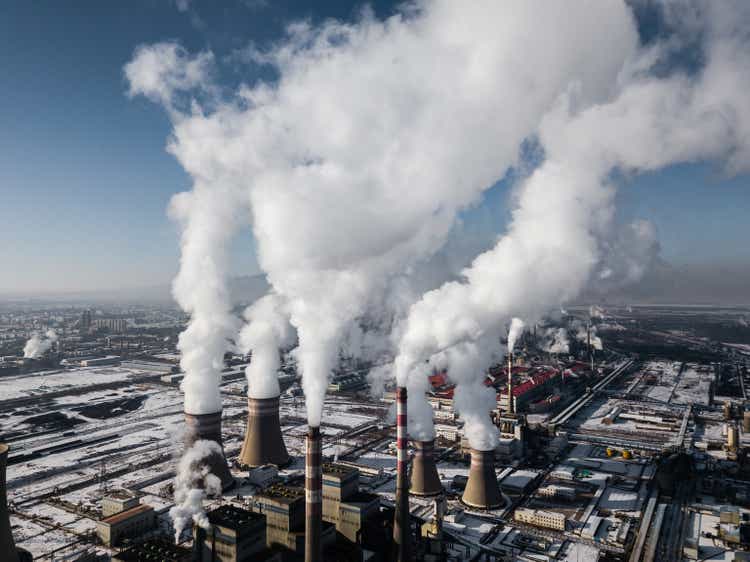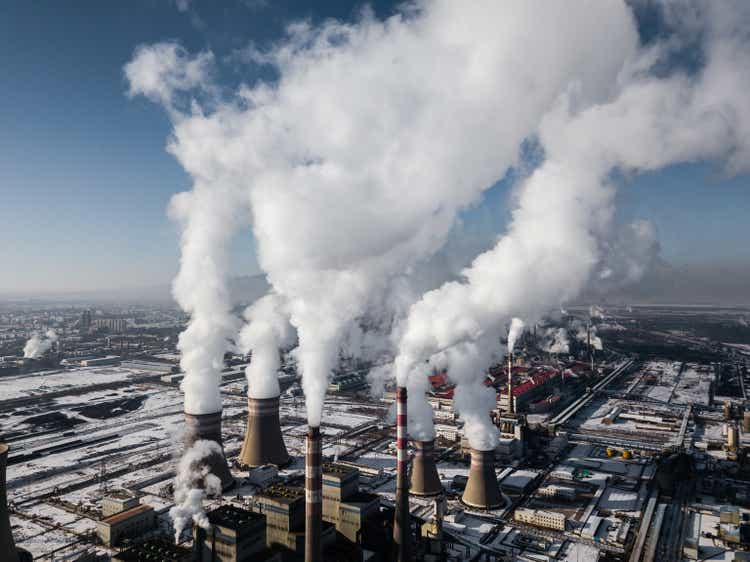
AerialPerspective Works
Electric companies pushed back this week against the Biden administration’s proposed rules to cut carbon emissions from power plants, arguing the plan relies on costly, unreliable technology that is not “legally or technically sound.”
Four of the largest U.S. grid operators – the 13-state PJM Interconnection, the the 15-state Midcontinent ISO, 15-state Southwest Power Pool, and the Electric Reliability Council of Texas – expressed alarm with the Environmental Protection Agency’s proposed requirements in joint comments submitted this week.
The operators warned the proposed rule “could result in material, adverse impacts to the reliability of the power grid,” particularly as the EPA is overestimating how quickly technological advances may occur in green hydrogen production and in carbon capture and storage.
“If the technology and associated infrastructure fail to timely materialize, then the future supply of compliant generation – given forced retirements of non-compliant generation – would be far below what is needed to serve power demand, increasing the likelihood of significant power shortages,” the grid operators said, also warning the proposed rule could speed the retirement of fossil-fueled power plants before they can be replaced with new generation that can supply needed reliability services.
The Edison Electric Institute, the top trade group representing investor-owned electric companies, was more diplomatic but addressed the same concerns, saying “Electric companies are not confident that the new technologies EPA has designated to serve as the basis for proposed standards for new and existing fossil-based generation will satisfy performance and cost requirements on the timelines that EPA projects.”
ETFs: (NYSEARCA:XLU), (XLE), (ICLN), (QCLN), (PBW), (PBD), (ACES), (CNRG), (ERTH), (SMOG)
The Environmental Protection Agency released its proposal in May that would require steep pollution cuts from plants burning coal or natural gas.
The rule encourages the plants to rely on green hydrogen as well as carbon capture and storage technologies to help cut emissions, but no power plant in the U.S. currently uses the technologies, and even some environmentalists are not sure they will work.
More on proposed climate-related regulations:








